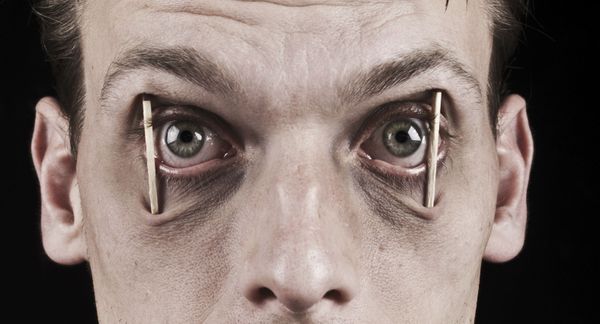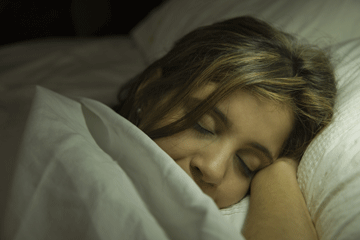For many people, sleep may seem like a waste of time and a bad idea from an evolutionary perspective. After all, spending a third of your time snoozing leaves you vulnerable to attack if you're living out in the wild. Yet life forms continue to need sleep as they grow more complex.
While it's unclear to modern scientists whether unicellular organisms, like bacteria, sleep, these simple creatures do demonstrate circadian rhythms similar to those found in more advanced species [source: Bell-Pedersen et al]. Tiny marine worms demonstrate an even greater propensity for sleep, generating melatonin in cycles that are remarkably similar to those of humans. A 2008 University of Pennsylvania School of Medicine study reveals that round worms have sleep needs and habits just like humans, and their need for sleep increases if they are sleep deprived [source: Penn Medicine].
Advertisement
Some researchers suggest that the need for sleep evolved as human brains became more complex, forced to accommodate larger and larger amounts of sensory input [source: Kavanau]. Far from evolving to need less sleep, humans will likely evolve toward needing more sleep than ever as they continue to advance and develop.
A 2011 study on cavefish provides fascinating insight into the evolution phenomenon. Fish that live in dark caves have evolved without eyes, while similar species that are exposed to light have kept their eyes. Those eyeless fish that live in the dark have much less sensory input than the sighted fish. When scientists studied their sleep cycles, they found that the underground species slept much less than the above-ground ones, yet both maintained the same level of performance and activity [source: Duboué].
Of course, scientists continue to look for ways to outsmart the body and allow humans to stay awake without suffering physically or cognitively. A 2009 study found that a single gene, hDEC2, regulates the need for sleep, and people with a mutation in that gene can get by with almost no sleep [source: He et al]. If scientists can learn to manipulate that gene, they may be able to allow humans to survive on little or no sleep.
Other researchers aim for artificial methods of keeping humans awake. In 2002, scientists at Columbia University discovered that a method called transcranial magnetic stimulation (TMS), which sends electrical signals to the brain, may be able to help people cope without sleep. However, the process is still in the experimental stage [source: Dougherty].
Advertisement



